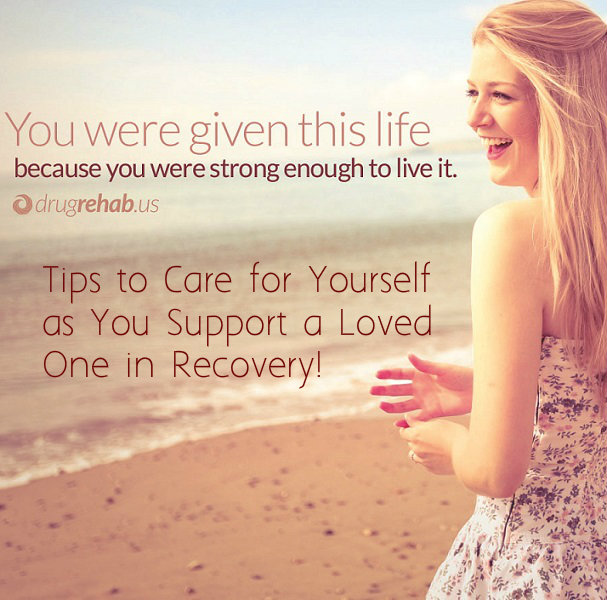11 Jun 2015
How Your Parent’s Substance Abuse Affected You
If you grew up with one or more parents abusing drugs or drinking too much, you probably have some bad memories. Whether you like to spend much time reflecting on it or not, your parent’s substance abuse affected you in negative ways. It hurts to think about it, but when you start to wrap your head around what happened you can finally learn how to forgive an alcoholic parent and move on with your life as a happy and well-adjusted adult.

Ways Your Parent’s Substance Abuse Affected You
The following are just several ways that your parent’s substance abuse may have affected you.
You Didn’t Learn How To Communicate
You might think that because your parents were not abusive and because they didn’t neglect you in any serious way, they didn’t harm you. But what you learn from your parents is more complicated and subtle. Abuse and neglect are traumatic experiences, but they are not the only ways in which parents with substance use and abuse disorders harm their kids. For instance, communication in the household probably suffered. Communication in houses with substance abuse tends to be negative and limited. Without good modeling for how to communicate with people you care about, you may not be good at it as an adult.
You Learned To Self-Medicate
You missed out on the modeling of certain positive behaviors, like communication, mentioned above. Your parents probably also showed you some negative behaviors, and you may have followed their example. Many people who drink too much or abuse drugs do so as way to self-medicate. It’s a way to push down emotions, relieve stress or ignore the uncomfortable symptoms of untreated mental illness. You learned an unhealthy strategy from your parents when they should have been showing you healthy ways to mitigate stress and to cope with bad feelings.
You Grew Up Too Soon
Many children with alcoholic or addicted parents are forced to be more responsible than they should have to be. You were also forced to face situations, conflicts and emotions beyond your years. Of all the effects of parental drug abuse on children, this is the most unfair. Children are supposed to be children and not have to worry about adult problems. In a way, being forced to grow up quickly is a sort of trauma. Maybe you weren’t physically abused and maybe you always had enough to eat, but you were forced to face adult issues at such a young age.
These are just a few ways that your parent’s substance abuse has affected your life, both when you were young and as an adult. When you learn to face and work through these issues, you can start to let go of anger and resentment. Repairing love after drug addiction or alcoholism isn’t easy, but it allows you to mitigate the negative effects and learn to be a healthier and happier adult.
You Can Do It – We Believe In You – For Help, Call One Of Our Counselors Now!
When you have a loved one battling addiction, especially if it is someone close to you, it is all too easy to get wrapped up in his problems and his needs. As you support him, stand by him and care for him, don’t forget to take care of yourself. Caretakers often lose sight of who they are and become stressed, overwhelmed and sometimes even physically ill from the strain of caring for someone else. Take time for your own needs while still supporting your loved one and you will stay healthy and sane and better able to care for him.
Tips For Caring For Yourself As You Support A Loved One In Recovery
Lending Support In Recovery – Make A Plan
What does healthy support look like? If you have never stood by someone through such a difficult period of healing and transition, and if you have never watched while someone else played the role of caregiver and supporter, you may not know what is appropriate. What works for you and for your loved one is up to the two of you to decide. You need to decide if you should be living with this person, how much time you will spend with him and what form your support will take.
If, for example, you are caring for a child in recovery, you might want to stay with him until he is well enough to be independent. On the other hand, if you are supporting a friend, living together may not be an option. Instead, you may visit her every day, drive her to support group meetings or be on call as needed. Devoting all of your free time to supporting someone you care about is not necessarily feasible or appropriate. Set limitations and decide how much you are able to give.
Prepare A Support System For You
There are support groups for loved ones of addicts for a reason. Helping someone who is battling addiction, even if that person is getting professional help at the same time, isn’t easy. Knowing how tough this may be, get your own support system together. Let some of your friends or family members know what is going on in your life and that you may need to talk over a cup of coffee. Also consider picking up meeting schedules for support groups. Talking with people who have been where you are can be powerful.
Get Others To Assist
It may be that your loved one has few other people to whom he can turn for support. He may be relying solely on you. Ideally, though, you can call on others to fill in when you can’t be there. Ask trustworthy people who also care about him to spend at least a little time with him. Even just an hour here and there can be a great relief to you.
Take Time Off And Take Care Of Yourself
You can’t be there for your loved one 24 hours a day, seven days a week. It’s not practical and it isn’t good for you. When you feel overwhelmed, take a break. Whether this means taking a walk outside for an hour, spending a day pampering yourself or taking a quick weekend trip to relax and de-stress, do it. Get plenty of sleep each night, eat well, make time for exercise and fun and take time away from your duties. No one can be there for a recovering addict all of the time. If you take care of yourself, you will be better able to help the one you love overcome his struggle.
Discover Why You Should Join A Support Group As The Loved One Of An Addict – You Need Help And Healing Too!
22 Dec 2014
How To Drag A Family Out Of Denial
Denial is a powerful force, not for change, but for maintaining the status quo. We tend to think of the addict as being the one in denial, but often the people around her are also heavily in denial about the problem. Denial is something that can be useful at times. It may keep us sane in the face of something terribly traumatic. Most of the time, however, denial keeps us from making positive changes.
If you have an addict in the family and everyone else denies that there is a problem, make an effort to drag them out of their inertia to help your loved one.
Denial And Addiction
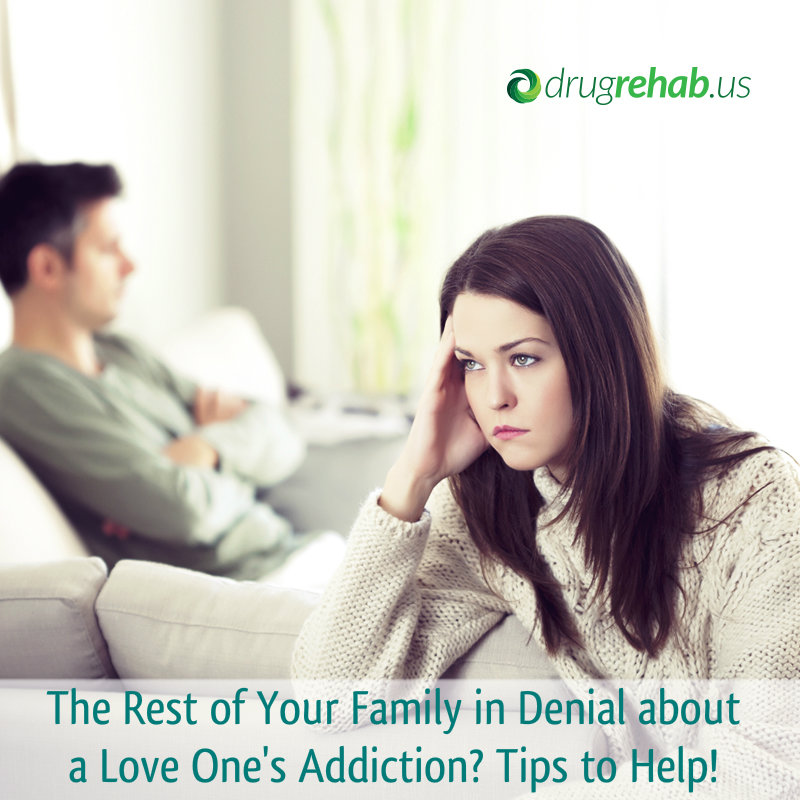 Denial is a common feature of addiction. It allows the addict to make excuses and keep using. Addicts often keep themselves in denial and can’t get help until they fully admit to having a problem.
Denial is a common feature of addiction. It allows the addict to make excuses and keep using. Addicts often keep themselves in denial and can’t get help until they fully admit to having a problem.
On the other side of the coin are the loved ones in denial. It’s understandable to see this happen. Parents, for instance, may find it impossible to admit their child is a chronic drug user or an alcoholic. Other members of the family may be in denial because conflict within the family changes the dynamic and upsets the balance.
These family members may think they are keeping everything on an even keel, but the truth is they are only enabling the addict. They are making the situation worse and allowing the addict to continue on a downward spiral. If you are the one family member not in denial, it may be very difficult to speak up. You are the one rocking the boat and everyone else reacts as if you’ve lost your mind.
How To Break Through Family Denial
If you really care about your loved one and your family, you can try to break down the wall of denial. Remember that you may not be successful. You can only do so much, and you can’t force people to change. The best you can do is to try to change their minds, convince them to see the truth and offer your love and support to the addict.
- Show that you are serious – It isn’t easy to go against what everyone else is seeing. If you have been quietly putting a bug in the ear of anyone who will listen, it’s time to step up and take a bolder stand. Hold a family meeting without the addict. Confront your family head on and show them that you mean business. This straightforward approach may jolt some of your family members out of complacency.
- State the facts – Before you hold the meeting, prepare a list of facts. Present your family with concrete examples of how your loved one displays the signs of addiction. Lead with facts rather than emotions and they may take you more seriously.
- Remain calm and be patient – Give your family time to let the facts sink in. If no one gives up his or her denial immediately, don’t get frustrated. Let it go for a few days and then come back to family members individually. You may find that some are prepared to listen to you now.
- Offer help – When all else fails and your family remains in denial, give your love and support to the addict. You can’t always change minds, but you can offer your help. Tell your addicted loved one that you are there for her when she is ready and have resources for treatment prepared.
Denial may be powerful, but so is the care and love you have for your family. Do what you can to break through the denial, but recognize when you can do no more.
Find Out If You Are An Enabler And How To Stop Enabling Now!
Your Addicted Loved One & Your Family Are Worth It – Call Us Now For Help
Including Help Setting Up An Intervention !
In June of 2014, the Delaware News Journal partnered with Christiana Care to host a forum on the heroin crisis gripping the state, but several questions from audience members were left unanswered. Panelists at the event willing to work with the Delaware News Journal have offered to answer some of these questions in an ongoing feature, and Don Keister, co-founder of the anti-addiction group atTAck and whose son died of heroin addiction in 2012, has stepped forward for the task. The question he answered revolved around what you should do when an adult child who lives with you—and has children of his or her own—is struggling with addiction but won’t get help, and his response offers important advice to anybody suffering similar issues.
The Three Cs For Family Members Of Addicts
Keister offers a core piece of advice from Al-Anon: remember the three Cs.
You didn’t cause it,
you can’t control it
and you can’t cure it.
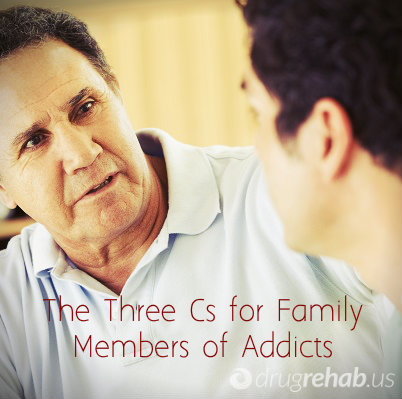 If someone you care about is suffering from addiction, there’s an inclination to try to take too much on your shoulders or even to feel guilt, but this is unhealthy.
If someone you care about is suffering from addiction, there’s an inclination to try to take too much on your shoulders or even to feel guilt, but this is unhealthy.
You’re in no way responsible for what is happening. It’s only natural to want to fix the problem for your child, but addiction isn’t like a scraped knee or a period of minor financial trouble: it’s not something you can rectify for them.
By trying, all you’ll do is make yourself more stressed and unhappy. It may seem puzzling given the situation, but you need to care for yourself as well as your family member.
That’s the real purpose of the three Cs: you need to truly understand that you aren’t to blame, and you can’t heap all the responsibility onto your own shoulders.
No Single Solution To Recovery
Sadly, there isn’t a single road you must follow to recovery. You need to think about what works for you and your family as individuals, but it is important that you’re there to offer support. You need to continue to love your child, and of course the same goes for your grandchildren.
Although you can’t force somebody to get help, you should do whatever you can to support and encourage your son or daughter to go into recovery. Even if your child won’t get help, you shouldn’t blame him or her for the issue either; addiction has many causes and it isn’t productive to become angry with or resentful of somebody struggling with it. Your child always needs to know you’re acting out of love and concern for his well-being.
Addiction As A Family Disease
Keeping all of that in mind, it’s important you recognize that addiction is a disease that affects entire families. The most obvious affected parties are your grandchildren: your son or daughter is unlikely to be capable of offering the level of parental care they need, and this is one area where your support is invaluable.
However, as the three Cs point out, you need to care for yourself too. The challenge is staying as healthy as you can while still being there to help the entire family unit—including the addict—get through this together. This is especially important if you’re all living together, but it makes it all the more difficult to avoid taking too much responsibility yourself.
Importance Of Getting Additional Recovery Support
That’s why getting additional recovery support is essential. Even if the addicted individual won’t get help, groups like Al-Anon exist to offer support to the loved ones of addicts, and can help you get through the problems you’re facing. Addiction isn’t easy for anybody in the family, and if you’re having difficulty, help is available.
Keister’s advice might not have been what you were hoping for, but it’s realistic, and attests to his personal experience with the problem. As much as you may want an easy fix, it doesn’t really exist. Things can and hopefully will get better, but until then, all you can do is be as supportive as possible and make sure you look after yourself, too.
If You Need Help With A Family Member’s Addiction – Call Us Now!
The ways in which addiction impacts families are numerous. If you have been struggling because someone you love is battling the disease of addiction, you need help. The addict is not the only one affected by addiction and is not the only person who needs support to heal.
You may need to attend therapy on a one-on-one basis. You might consider attending sessions with the addict you love. But you should also consider joining a support group. The mutual support of other people who have been through the same struggle can be a powerful tool to help you heal.
How Addiction Impacts Everyone
When someone is battling addiction, he tends to think only of himself. True, he is going through an epic battle that could take his life, but the addict is not the only one to suffer. Addiction is a disease of the whole family. It causes stress and tension in the home and affects the stability of the family unit as well as the well-being—physical, mental and emotional—of each individual in it. It doesn’t matter if the addict is a child or a parent: everyone suffers.
Coping With An Addict In The Family
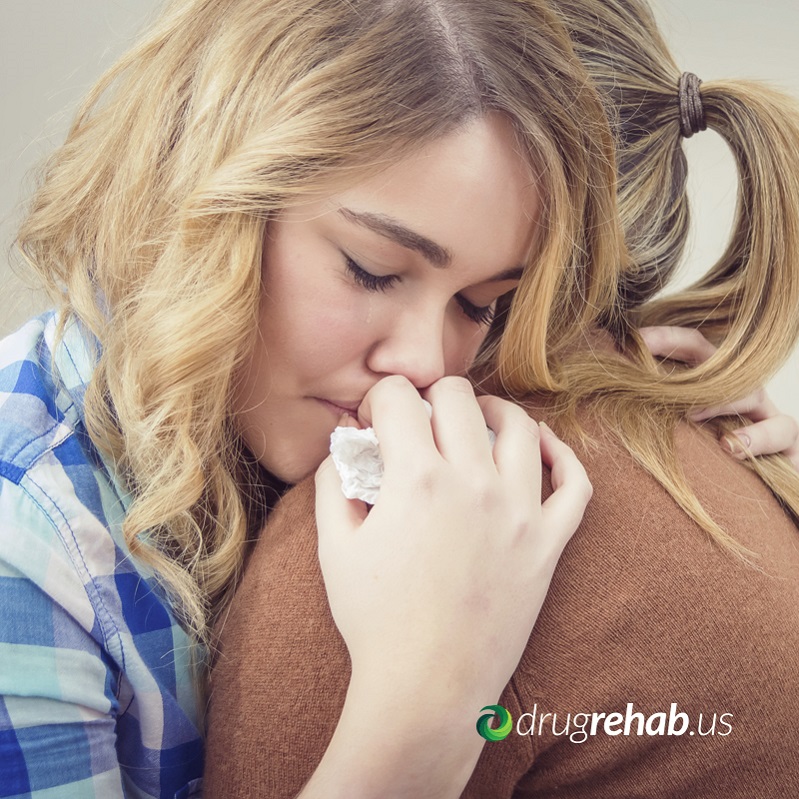 Experts agree that there are certain steps you should take if you have an addict in your family. First you need to educate yourself. Learn about addiction, what it is, what it means for the addict, and what it means for you. Education is power and is needed if you are to cope with this issue. Resist the urge to enable the addict in your life.
Experts agree that there are certain steps you should take if you have an addict in your family. First you need to educate yourself. Learn about addiction, what it is, what it means for the addict, and what it means for you. Education is power and is needed if you are to cope with this issue. Resist the urge to enable the addict in your life.
This seems obvious, but enabling can be subtle and you may not even realize you do it. Financial support, making excuses, taking over responsibilities are all ways in which you enable the disease of addiction. Finally, it is crucial that you help yourself through this process and a big part of that is getting support.
Joining A Support Group
You care about the addict in your life and you want to help him, but you can only do so much and you have to take care of yourself as well. Don’t deny or belittle the negative impact that addiction is having on your life. Acknowledge it and ask for support. Loving an addict can mean emotional, mental and physical distress. You can’t bear this alone, which is why support groups have been meeting for decades to help people like you.
Support groups for families of addicts are available nearly everywhere. If you live somewhere remote or have no transportation, you can at least find an online group to join. The benefits of joining one of these groups are huge. Simply being there to listen to the stories of others has a big psychological impact. Knowing that you are not alone in your struggles and that other people understand you will be a great comfort.
Be sure to attend sessions regularly to get the most benefit. It is also important to participate. If you are uncomfortable sharing at first, take your time. Go to a few sessions and just listen. The other members will understand that you don’t want to share right away. As you get to know how the group works and become familiar with the members, you will start to feel more comfortable. Push yourself to share. Talking about your own struggles will help both you and others. When you open up you begin to heal and when you begin to heal you will be better able to help the addict you love.
You And Your Addicted Loved One Are Worth It – Call Us Now For Recovery Help
Now that you are an adult and your parents are older, it may become your responsibility to care of them. Even if they don’t need round-the-clock care, it is important that you make sure your parents are happy and healthy and living well.
Part of that means watching for signs of drug abuse and protecting them from the risk of getting hooked on drugs.
It may seem like a worry you should never have to consider, but the truth is that drug abuse among older Americans is on the rise. Here’s how you can protect your parents.
Protecting Your Parents From Addiction
Get Educated
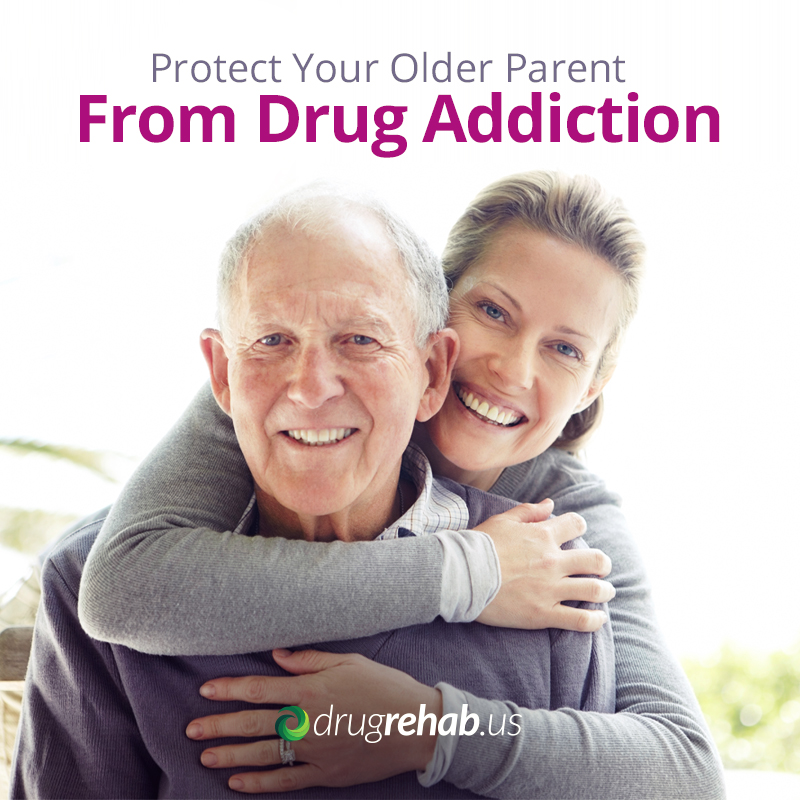 To protect parents from the dangers of substance abuse, it’s important that you understand the issue. Educate yourself about senior substance abuse and addiction so you are aware of the risks and the signs. Although it’s surprising, substance abuse among seniors is not that unusual. In fact, it is a growing phenomenon. Estimates show that by 2020, the number of older Americans needing treatment for a substance use disorder will have doubled. Just a few years ago, nearly five percent of adults over 50 were abusing drugs or alcohol.
To protect parents from the dangers of substance abuse, it’s important that you understand the issue. Educate yourself about senior substance abuse and addiction so you are aware of the risks and the signs. Although it’s surprising, substance abuse among seniors is not that unusual. In fact, it is a growing phenomenon. Estimates show that by 2020, the number of older Americans needing treatment for a substance use disorder will have doubled. Just a few years ago, nearly five percent of adults over 50 were abusing drugs or alcohol.
There are several reasons older Americans are susceptible to substance abuse. One is access to prescriptions. Nearly one-third of prescriptions in the U.S. are written to people over 50. Becoming dependent on habit-forming prescriptions is more likely the more they are prescribed. Seniors are also more likely than younger people to experience certain social factors that may contribute to substance abuse: social isolation, a feeling of uselessness after retirement, the loss of a spouse, and depression.
Talk About Drug Abuse
Armed with the facts, start a discussion with your parents. It may be awkward or uncomfortable at first, but knowledge is power. If you can make your parents understand how risky it can be to abuse their prescriptions or to drink too much, they will likely make better decisions. They may also be unaware just how their emotional health impacts the choices they make regarding substances. Encourage your parents to get involved in social activities and to talk to you if they are feeling lonely, depressed or sad.
Help Manage Prescriptions
Abuse of prescriptions by seniors is often unintentional. Many get hooked simply because they need a drug, like a painkiller, to feel better and then use of it spirals out of control. With many different prescriptions, which is common with seniors, it can get confusing. Your parents may end up making mistakes with doses and combinations. Go to appointments with your parents and take careful notes about medications, dosages and interactions. Help your parents organize medications and monitor their drugs to be sure they are taking them correctly.
Monitor Behaviors And Get Help
Drug abuse has telltale signs, no matter the age of the user. Spend time with your elderly parents and watch for changes in health or behaviors that trouble you. Drug or alcohol abuse can cause changes in sleeping habits or appetite, irritability or anxiousness, confusion, and an increased number of falls. You know your parents, and if anything changes that makes you uncomfortable, be suspicious.
If you do suspect substance abuse in a parent, don’t hesitate to get help. Treatment options are available and seniors are more open to them than you might think. The good news is that statistics show that patients over 50 are the most successful when it comes to getting addiction treatment. Be there for your parents, guide them, educate them and help them when they need it so that you will have many more years to enjoy spending time together.
Get The Know-How On Why Substance Abuse Is Rising Among Seniors
07 Oct 2014
Protecting Older Loved Ones From Substance Abuse
When you take care of your aging parents you are paying back all the years of love and care they took in raising you. You are also doing something out of love. You care for your parents and want them to be safe and comfortable as they age. Whether or not an older parent lives with you, you hope to be an advocate, a caregiver and someone on whom they can rely. What you probably never thought you would have to worry about is substance abuse. Statistics show that older Americans are abusing drugs more than in any previous generation. How do you know if your mom or dad is taking part in this trend and how do you prevent it?
Substance Abuse In Older Americans
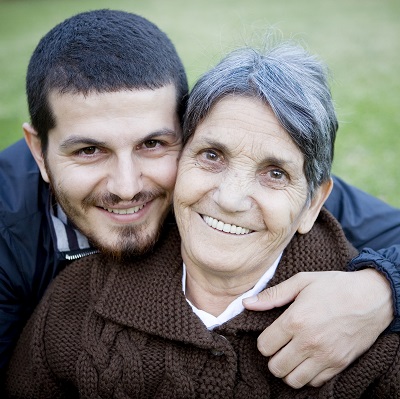 It may seem unlikely, but substance abuse is a real problem in the aging population today. If you have a parent to care for, you should be aware of the issue.
It may seem unlikely, but substance abuse is a real problem in the aging population today. If you have a parent to care for, you should be aware of the issue.
Senior Prescription Drug Abuse
Thirty percent of older Americans take at least five different prescription medications every day, which means they have numerous opportunities to abuse prescription drugs. Abuse of prescriptions is one of the biggest substance abuse problems among the older population. Hospitalization of older patients for prescription-related problems rose nearly 100 percent over a decade from 1997 to 2008.
Senior Alcohol Abuse
The other major type of substance abuse among older adults is alcohol. Access and habit can help to explain why older adults abuse prescriptions and alcohol. Many older people grew up at a time when drinking a cocktail after work every day was considered normal behavior. Depending on the population studied, between 3 and 25 percent of older Americans drink heavily. A particular concern is the combination of alcohol and prescription drugs.
Protect Your Parents From Substance Abuse And Addiction
It is important to understand that there is an issue when it comes to older Americans and substance abuse. You should also understand what makes older adults susceptible to abuse and addiction so that you can protect your parents and any other older loved ones. One reason they may become hooked on drugs is the prevalence of prescriptions. Older people are often prescribed medications, such as painkillers, which are highly addictive. With pain from arthritis, surgery or falls, older adults are more likely than younger people to be prescribed these painkillers.
Another issue with older people is loneliness. As we age our social circles begin to shrink. Many older adults find themselves more alone than ever before. Depression is also a problem as they lose friends or a spouse. Turning to drugs or alcohol to mitigate feelings of sadness, depression and loneliness is not uncommon.
To protect your parents from the possibility of substance abuse or even addiction, it is important that you counteract the factors that make them vulnerable. Monitor the prescriptions that your parents use and talk to their doctors about whether any of them can be abused or are addictive. If any of them are, talk to your parents about the possibility of getting addicted to them. Check with with doctor also to see if any can safely be switched over to a less-addictive prescription
Perhaps most importantly, spend time with your older loved ones. Changing social circumstances can make a powerful impact and you can make a difference. In addition to spending time with them, also encourage your parents to seek out social activities. Get them involved in senior centers where they can meet new people. An active social life, combined with your love and attention, will go a long way toward helping your parents feel good about life. These actions will also help protect them from the growing dangers of substance abuse.
Read More About: The Unimagined Costs Of Having An Addicted Family Member And What You Can Change – Healing Is Possible! Don’t Give Up!
23 Sep 2014
How To Cope When Your Child Is An Addict
Having an addict in the family is never easy. When that addict is your child, whether a teen, young adult or fully-grown adult, the impact on you as the parent is devastating. First you feel immense guilt and pain because your child is suffering. You may also face a lack of support from your loved ones. Finally, your mental, emotional and physical health may begin to deteriorate. How do you cope with these issues after you have tried to get help for your child?
Living With Pain And Guilt When Your Child Is Addicted
 It is only natural to experience a sense of extreme guilt and feeling as if you have failed your child in some way. Seeing your child suffer can also cause you a tremendous amount of anguish and emotional pain. If you have done your utmost to help your child get into recovery, if you have expended your resources, you have done what you can. Remember that your child is capable of making decisions and his poor choices are not your fault. It is normal to still feel guilt and pain, but there are ways to cope.
It is only natural to experience a sense of extreme guilt and feeling as if you have failed your child in some way. Seeing your child suffer can also cause you a tremendous amount of anguish and emotional pain. If you have done your utmost to help your child get into recovery, if you have expended your resources, you have done what you can. Remember that your child is capable of making decisions and his poor choices are not your fault. It is normal to still feel guilt and pain, but there are ways to cope.
Realize that extreme feelings of guilt and pain are signs of a negative attachment to your child. Recognize this attachment and how it is harming you. Accept that your child makes his own choices and that you cannot force him to stop using drugs or alcohol. Focus your energy on yourself and on the positive relationships in your life. If your spousal relationship has been damaged because of your child’s addiction, work on it. Redirecting your focus will help you detach from negative and unhelpful emotions.
Getting Support For Family Addiction
A major issue that parents of addicts face is a lack of support. If your child had another kind of medical disease, like cancer, you could expect to receive all kinds of support from family and friends. Parents of addicts, however, often find their loved ones have turned away, thanks to the lingering stigma attached to the disease of addiction. Support is essential to coping, so find it where you can. Look for other parents who know what you’re going through. Support groups for loved ones of addicts can be a great resource. You might also work on those closest to you. Talk to your more supportive loved ones and explain that you need help and love.
Taking Care Of Yourself When Your Going Through The Pain Of Your Child Being An Addict
You can only help others if you are properly cared for and are well. Trying to help your child and suffering from the guilt and other negative emotions his issues have created, your own self-interests have probably fallen to the bottom of your list of things to do. You must find the time to take care of yourself if you hope to be happy again, to be able to help your child when he is finally ready for it or to re-establish a healthy relationship with your spouse. It may seem selfish, but find time to do something you enjoy, something just for you. Make the time to prepare healthy foods for yourself and include exercise or meditation in your day. These small gestures will make you better able to cope with your addicted child.
Having a child who is seriously ill is one of every parent’s worst nightmares. With the disease of addiction the feelings of helplessness and guilt can be especially powerful. If you can dissociate yourself from those negative feelings, find support and take care of your own health, you can cope with this. You will even be able to help your child when he decides it’s time to get clean.
Read More: What Can You Do When You Feel Helpless With Your Child’s Addiction? And Help Your Child Overcome Their Addiction!
If You Need Help With Your Child’s Addiction – Call Us Now – We Are Here For YOU


